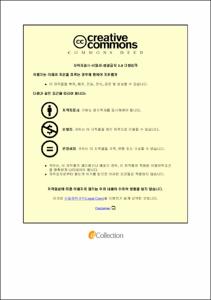A Comparative Study of Euphemism in Chinese and English
- Alternative Title
- 영어와 중국어의 완곡어법에 대한 비교 분석
- Abstract
- Euphemism is a typical and common cultural phenomenon which has a long standing history in languages. Death particularly is an important component of euphemism and plays a vital role in linguistics. This thesis analyzes the expressions of euphemism in English and Chinese which differ absolutely in culture, to see how euphemism is used in these languages, and to explore the deep cultural connotations underlying the language expressions.
For all people, death is the most terrible thing because it represents the end of life, which is the most terrible event to human beings. In any culture, death has caused people an unpleasant mood or fear as a taboo. There are many euphemisms for the word ‘death,’ in order to avoid directly talking about it. As a consequence, it is a forbidden area in every culture. Instead of mentioning the word ‘death’ directly, euphemisms are used to substitute for it. Death euphemism is a not only linguistic phenomenon, but also a cultural one. Euphemism can reflect the traditional value, religion, and social customs of the nations. In both Chinese and English, it is found that death euphemisms are often applied in the daily life. Paying attention to the various death euphemisms that are commonly used in the languages may improve our understanding euphemism about society’s attitudes toward death.
Generally, death brings sad feelings. The greatest misfortune in life is death. People are afraid of death and are unwilling to mention the terrible and mysterious word "death" for fear, which is assumed to misfortune or disaster. However, it has to be mentioned in real speech communication, creating different death euphemisms in languages. When people are unwilling to say such taboos and have to specify the matter, they have to use pleasant words to imply what others do not want to hear, and have to use hidden words to imply what others do not want to say about "death", thus resulting in death euphemism.
Death euphemism are used differently depending on languages and cultures, reflecting the spirit of the people and the culture thereof. This thesis discusses the euphemism in languages with respect to the religious beliefs, values, and customs. Now, based on these cultural similarities and differences, this thesis will illustrate the differences between Eastern and Western euphemisms of death.
- Issued Date
- 2020
- Awarded Date
- 2020. 2
- Type
- Dissertation
- Publisher
- 부경대학교
- Affiliation
- 부경대학교 대학원
- Department
- 대학원 영어영문학과
- Advisor
- Soonhyuck Park
- Table Of Contents
- 1. Introduction 1
1.1 Purposes of Thesis 1
1.2 Organization 2
2.Theoretical Background 3
2.1 Definition of Euphemism 3
2.2 Previous Studies 8
3. Death Euphemism in Chinese and English 11
3.1 Death Euphemism in Chinese 11
3.1.1 Religious People 11
3.1.2 Emperors and Ordinary People 16
3.1.3 Others 20
3.2 Death Euphemism of English 22
3.2.1 Religious People 22
3.2.2 Hospital and Sea 24
3.2.3 Others 25
4. Generalizations of Death Euphemism: A Comparative Analysis 28
4.1 Religion 28
4.2 Social Custom 32
4.3 Cultural Patterns 35
5. Conclusion 39
References 41
- Degree
- Master
- Files in This Item:
-
-
Download
 A Comparative Study of Euphemism in Chinese and English.pdf
기타 데이터 / 686.17 kB / Adobe PDF
A Comparative Study of Euphemism in Chinese and English.pdf
기타 데이터 / 686.17 kB / Adobe PDF
-
Items in Repository are protected by copyright, with all rights reserved, unless otherwise indicated.